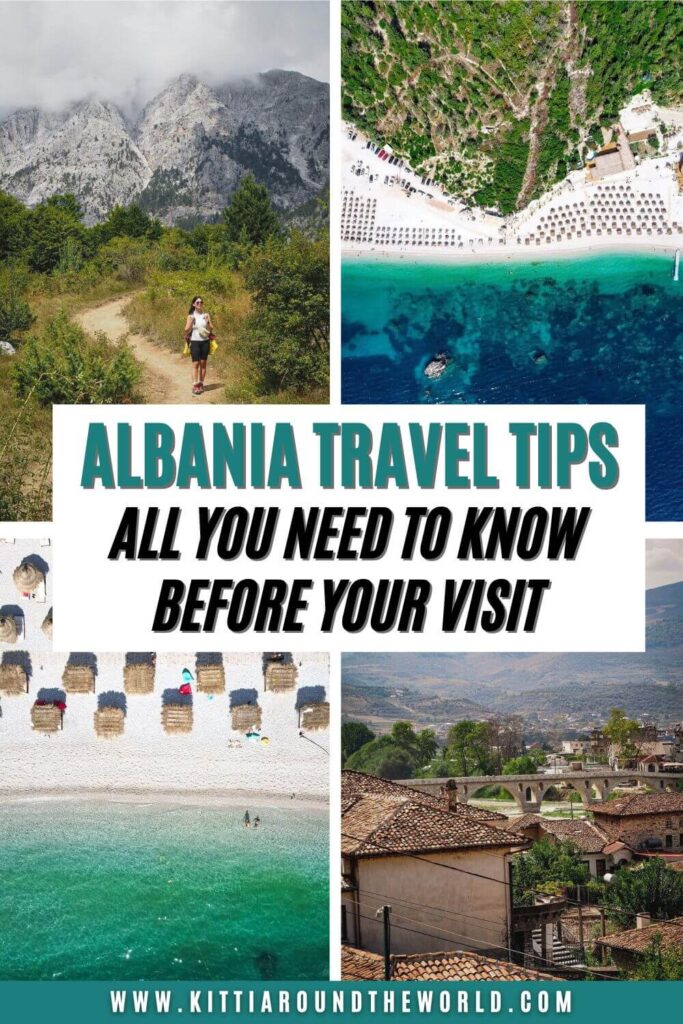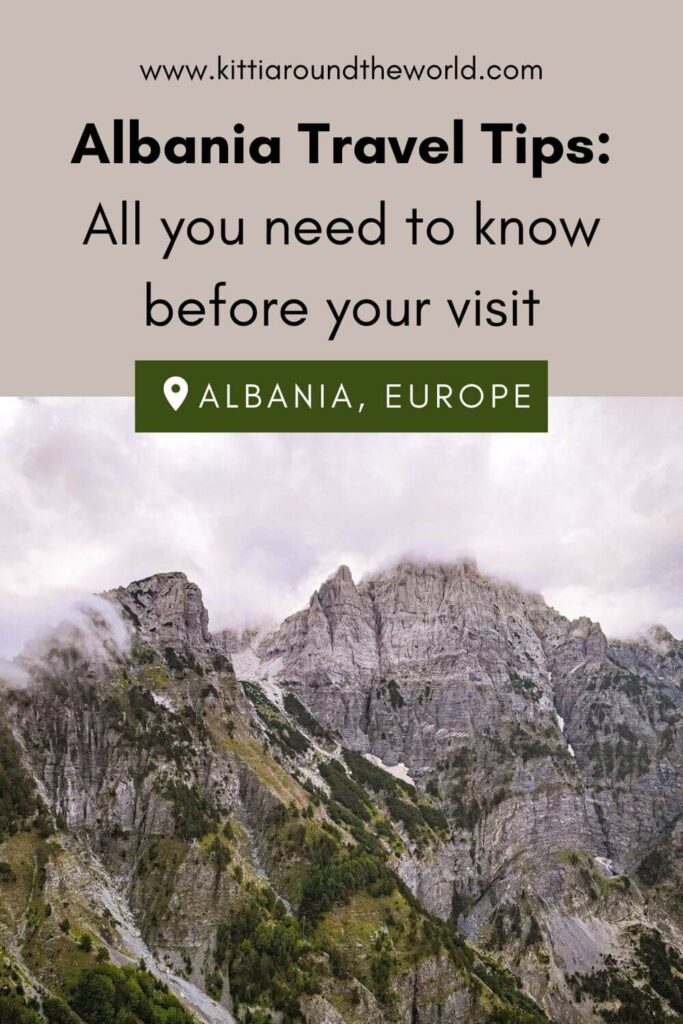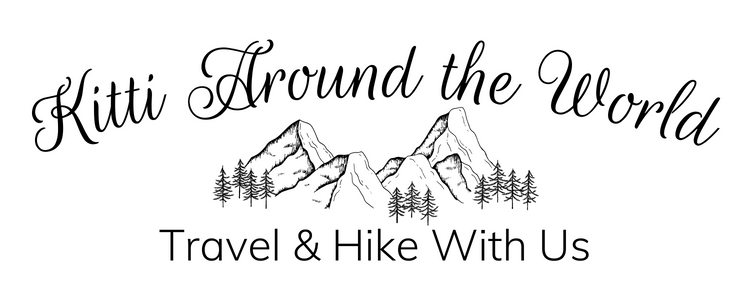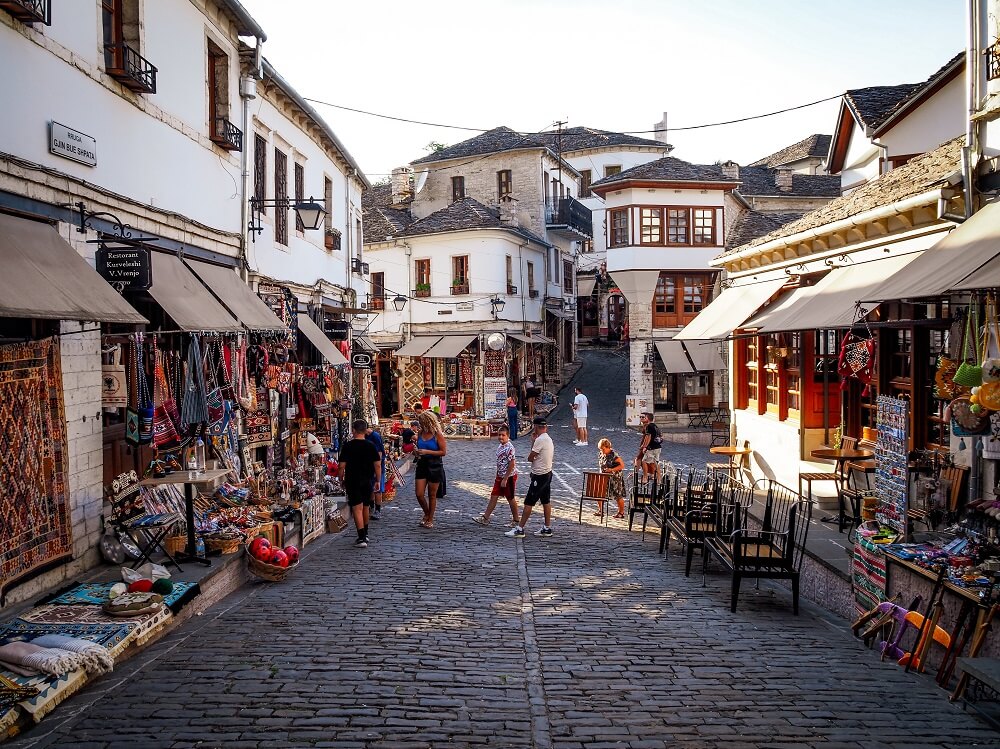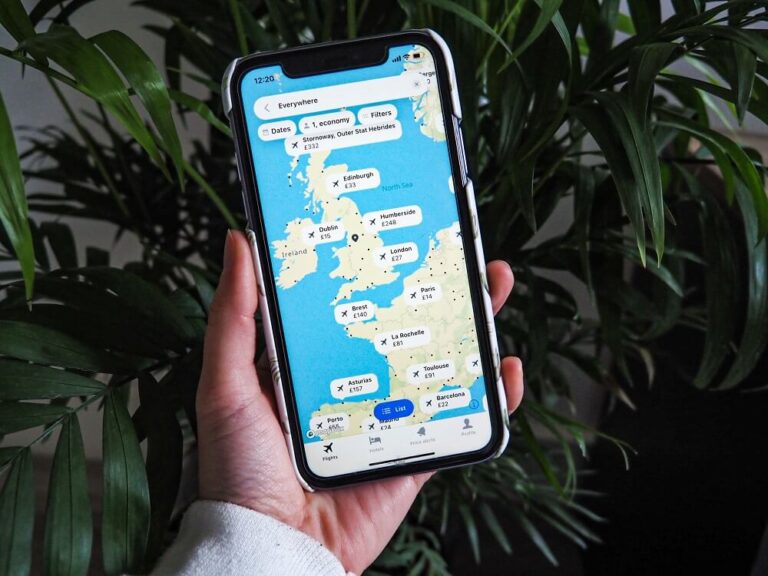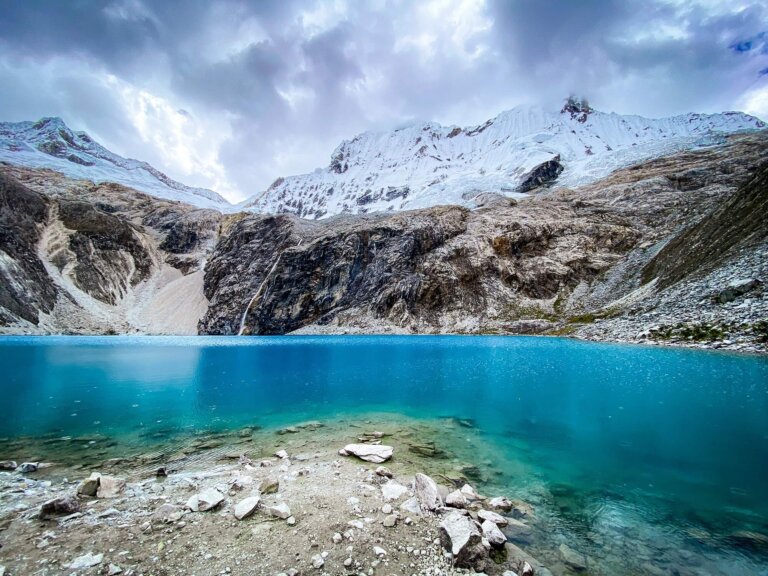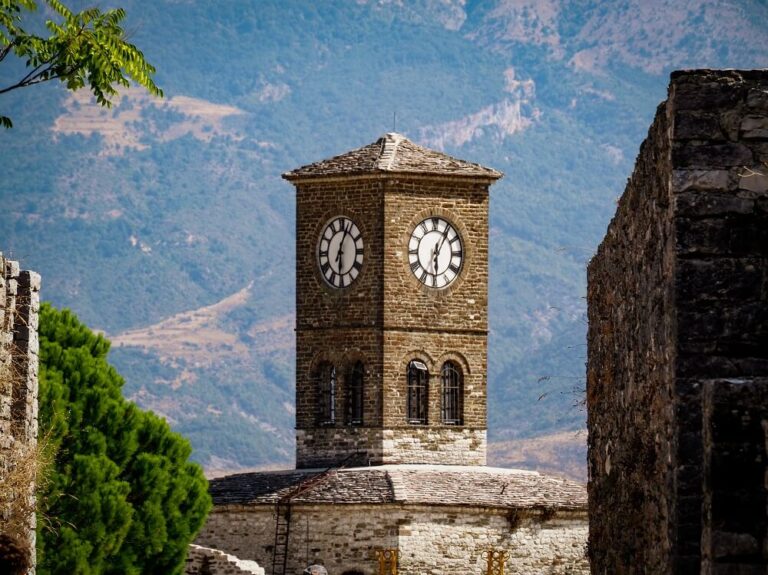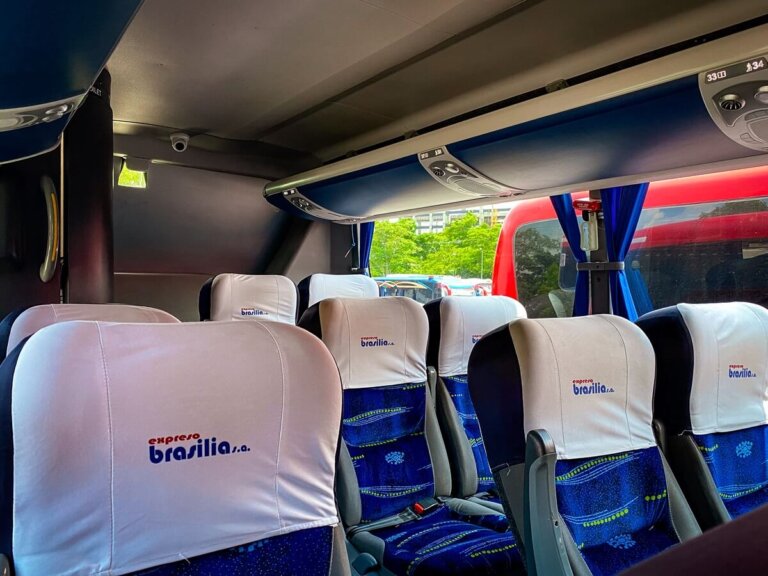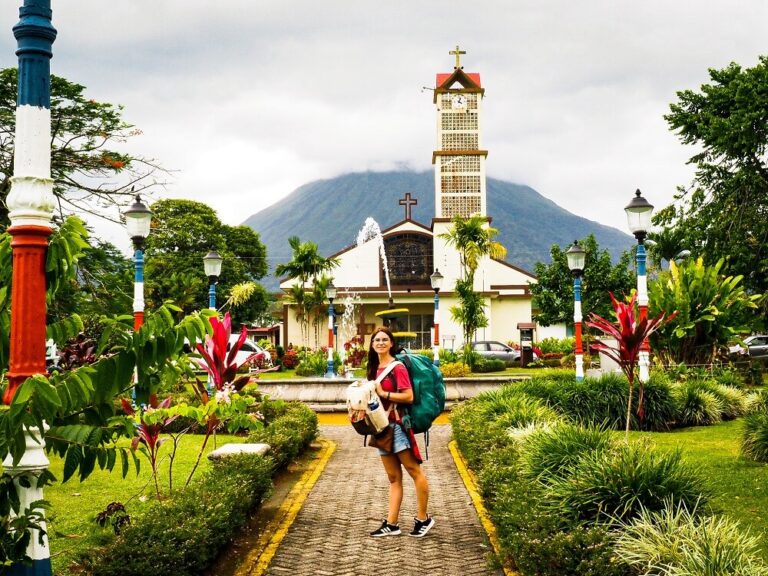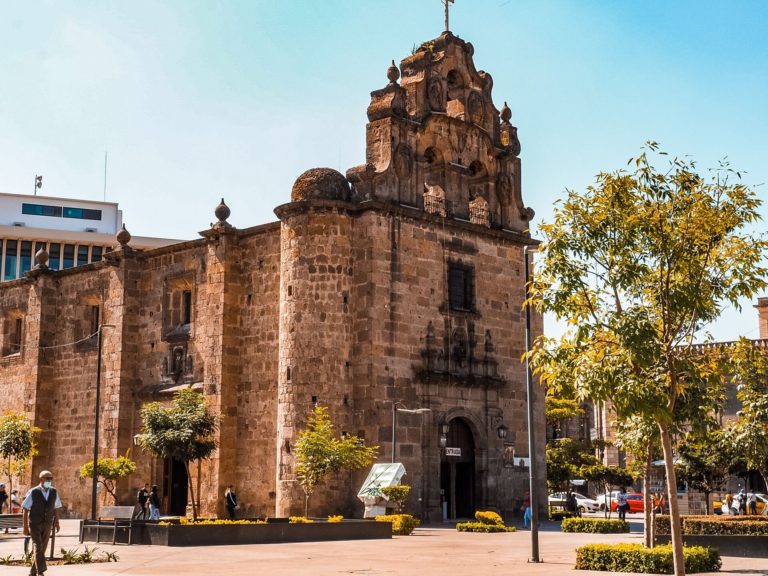Albania Travel Tips – All You Need to Know Before Your Visit
Are you planning a trip to Albania and would like to learn more about it prior to your trip? If so, then in this Albania travel tips post you’ll find answers to common questions such as safety, cost, what to eat and how to travel across the country with different modes of transportation.
We only spent two weeks in Albania, which definitely doesn’t make us experts on the country. However, as always, we did a ton of research prior to our visit. Therefore, the mixture of our research and personal experience will help us to answer some general questions you’ll probably have before your trip.
Note – It’s important that you do your own research too and check official websites as well as other blog posts. Everyone’s experience in a country will be different, so also bear in mind that this is just what we experienced.
Disclosure: This post may contain affiliate links, which means we may receive a small commission if you click a link and purchase something. Clicking these links won’t cost you anything, but it will help us to keep this site up and running! Learn more about our affiliate policy.
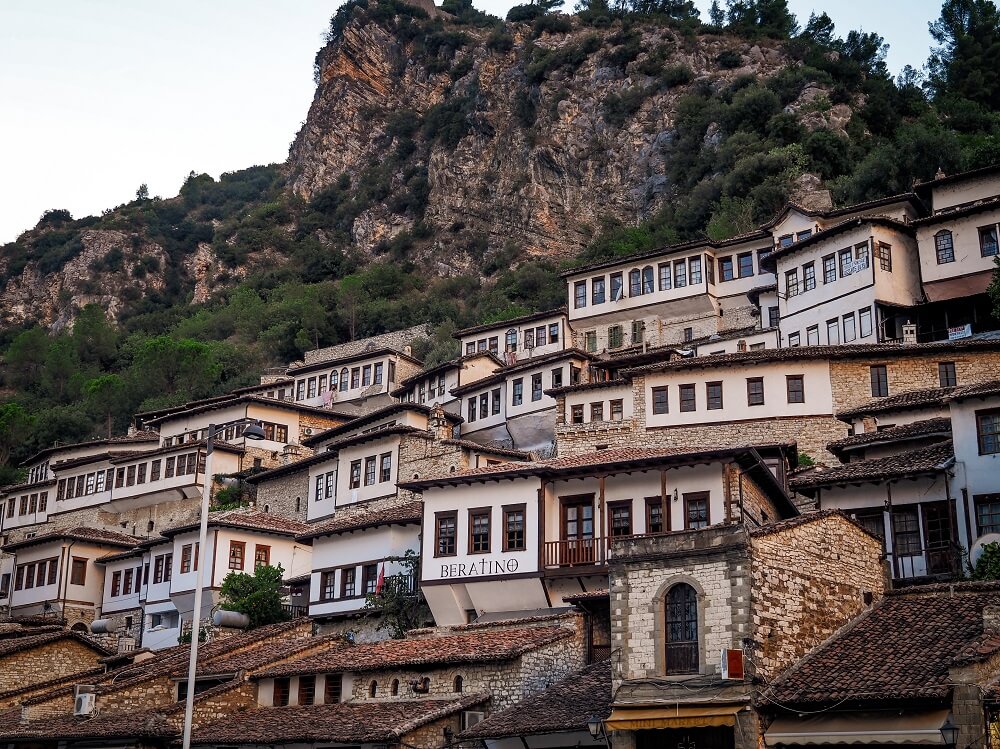
Introducing Albania
Before jumping into our Albania travel tips let’s get to know the country a bit more. Albania is a fascinating country in the Balkans and you could spend days just learning about its history and culture. Without going into too much detail, we’ve collected some interesting facts and information about the country:
- Albania shares land borders with Greece, Macedonia, Serbia, and Montenegro. Its capital city is Tirana.
- The country was under Ottoman rule, and declared independence in 1912. Later, it was under Italian rule, then communism, Russian, and Chinese rule before they achieved independence in 1991.
- There are more than 750,000 bunkers across Albania. They were built under Enver Hoxha, Albania’s communist dictator, in case of a nuclear invasion. Many of them now operate as museums.
- Under communist rule, religion was banned in Albania which made the country the first atheist one in the world. That has now changed and the country is a self-proclaimed secular state that allows freedom of religion.
- Albania is a member of NATO, but it is not a member of the EU. Although, the Euro is widely accepted as a method of payment.
- Albanians end their day with a xhiro which is essentially a sunset walk after dinner. We loved seeing people out and about chatting with each other.
- Apparently locals will shake their heads when they mean yes, and nod when they mean no. We tried to follow this but got very confused at times.
- Albania is home to Europe’s oldest lake, Ohrid, which has many fossils at the bottom. Their biggest lake is Lake Shkodra, although only about one-third of it is in Albania.
- Most of the country is mountainous terrain, so it’s a paradise for outdoor lovers like us. However, it has just as many stunning beaches along its coastline.
Our Top Travel Resources to Visit Albania
- 🛏️ Find your accommodations with Booking.com
- 🎫 Book an organised tour in Albania with GetYourGuide
- 🚗Hire a car with Discover Cars
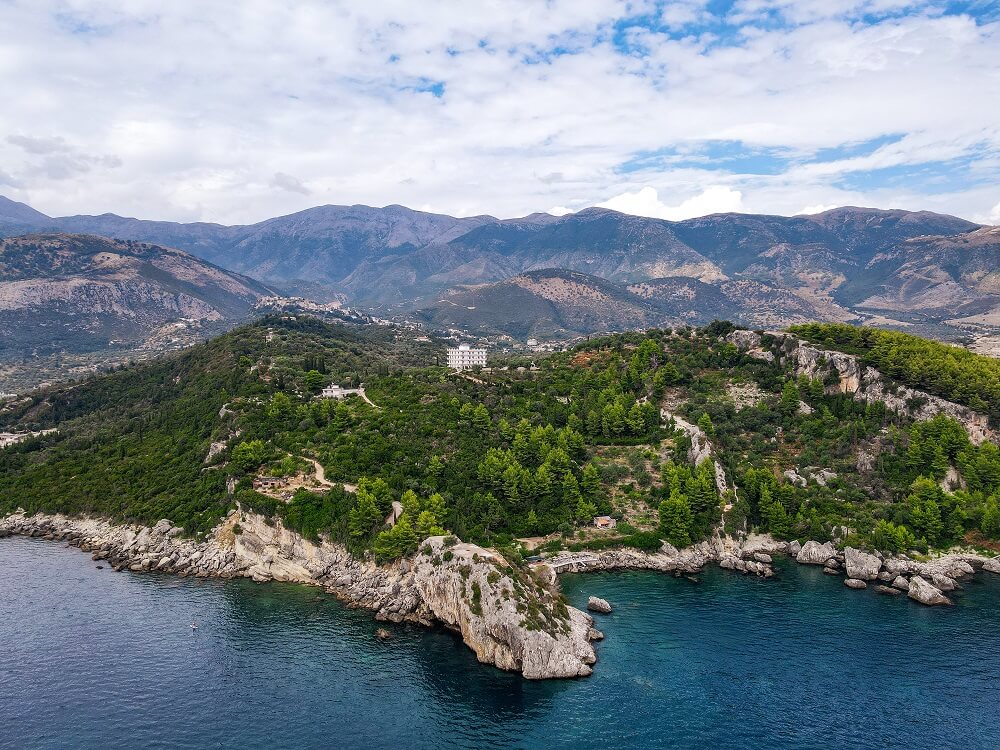
General Albania Travel Tips – Answering Your FAQs
In the first section of this Albania travel tips post, you’ll find answers to a lot of frequently asked questions about the country.
Please note that these answers are based on our own research done before visiting the country and our own experiences after spending two weeks there. Make sure to cross reference with different websites and blog posts!
Before you travel to Albania, make sure to have good travel insurance! Most likely nothing will happen to you, but it’s important to have some just in case.
Q1: Is Albania Safe to Visit?
We found Albania to be a safe country to visit.
According to the UK Foreign Office, public safety is generally good, and there are very few reports of crime aimed at foreigners or tourists. Of course pickpocketing can happen, so just bear that in mind when walking around.
Albania is definitely one of the friendliest countries we’ve visited so far. Everyone we met during our time in the country was welcoming and were willing to help even if we had to use Google Translate to have a conversation. Albanian hospitability just never stopped amazing us and there was even a time when we received free freshly baked cakes at a restaurant.
We travelled by local buses across the country and always felt safe on any kind of public transportation. Drivers and ticket officers were always helpful with directions and timetables. Of course, we still advise being vigilant and keeping your belongings close to you.
For more official safety advice please visit the Government’s website.
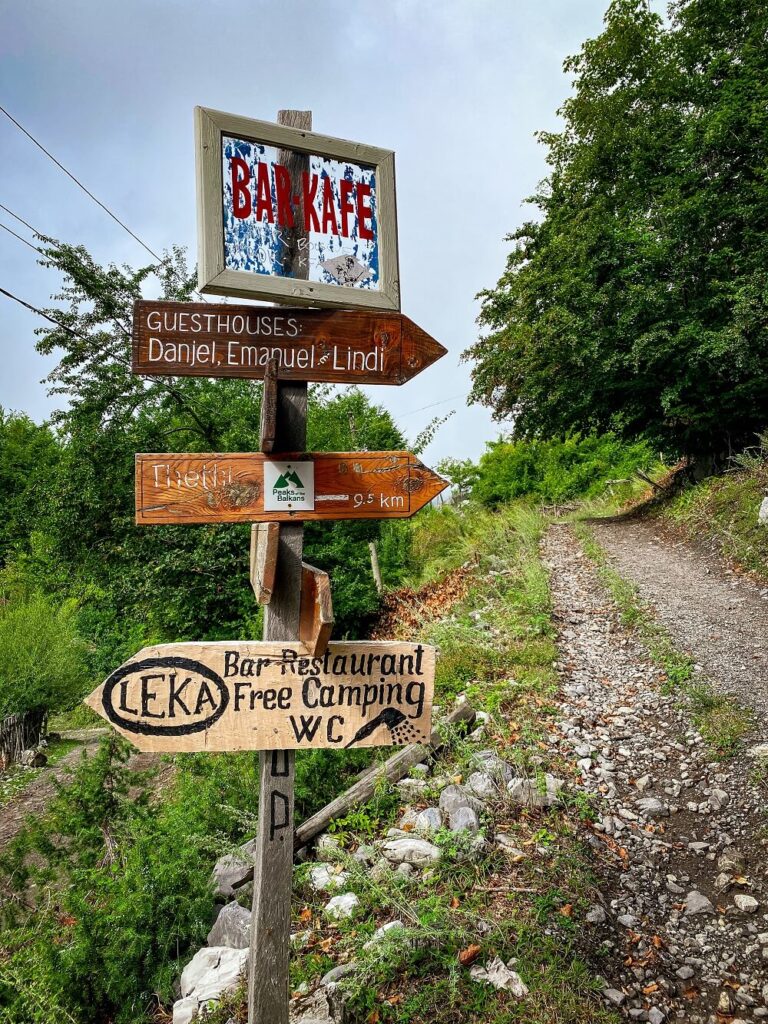
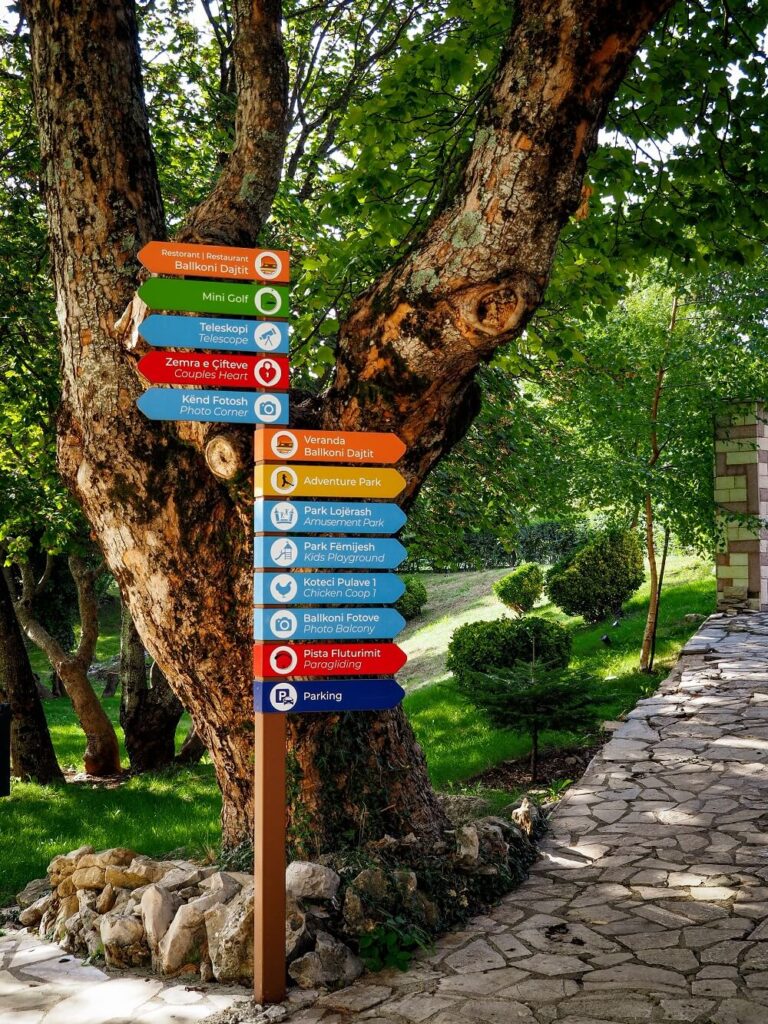
Q2: Can You Get Around Albania Using Only English?
Nowadays, many Albanians learn English as a second language, especially due to the fact that more and more tourists are visiting the country. Most people who work in tourism will have a basic level of English. We still advise you to download Albanian on Google Translate so you can use it offline anywhere in the country.
English, however, isn’t the only language Albanians speak. Quite a large number of the population speak Italian and/or Greek.
The Albanian language, Shqip, is actually quite unique and very different from their neighbouring countries. It is considered an Indo-European language but its exact origins are still a mystery to linguists.
One of our favourite Albania travel tips is to learn and use a few basic phrases when you’re in the country. Saying ‘hi’ or ‘thank you’ in someone’s native language is always appreciated and can go a long way. Here are some basic phrases:
- Hello – Përshëndetje,
- Thanks – Faleminderit,
- Bye – Mirupafshim,
- Yes – Po,
- No – Jo.
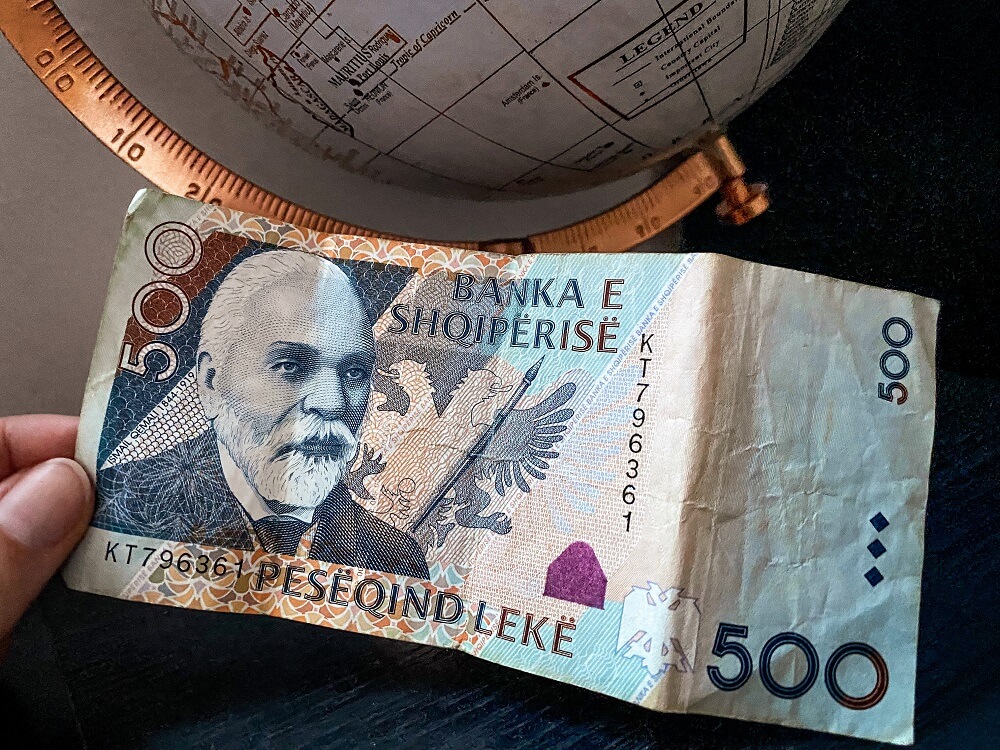
Q3: What Currency Does Albania Use?
Albania’s national currency is the Albanian Lek. This is going to be the main currency you’ll use, although many places now except Euros too despite Albania not being part of the European Union.
Cash or Card? – You can pay by card in many places such as restaurants, cafes and supermarkets whilst in bigger cities or touristy areas. However, smaller businesses, local shops, cafes and some entry fees were required to be paid in cash so be prepared for that. You’ll also need to use cash for toilets, some local buses and taxis.
Note. Albanian Lek is a closed currency, so you won’t be able to exchange any money outside the country. Make sure to spend all your money before leaving to avoid buying loads of chocolate bars and packets of crisps at a random petrol station just before you get to the border. (At least we were sorted for snacks for a few weeks).
Best Travel Card – Whenever we can, we prefer to pay in the local currency and for that we always use our Wise card. With that we can easily withdraw money from the ATM or pay by card at most shops and restaurants. Whilst you can’t set up an Albanian Lek account, you can open a Euro one.
Withdrawing Money – To avoid crazy ATM fees, you can always withdraw money at Posta Shqiptare or Credins Bank. Normally international banks will charge you a huge amount for withdrawals, so try a few different banks to compare the price.
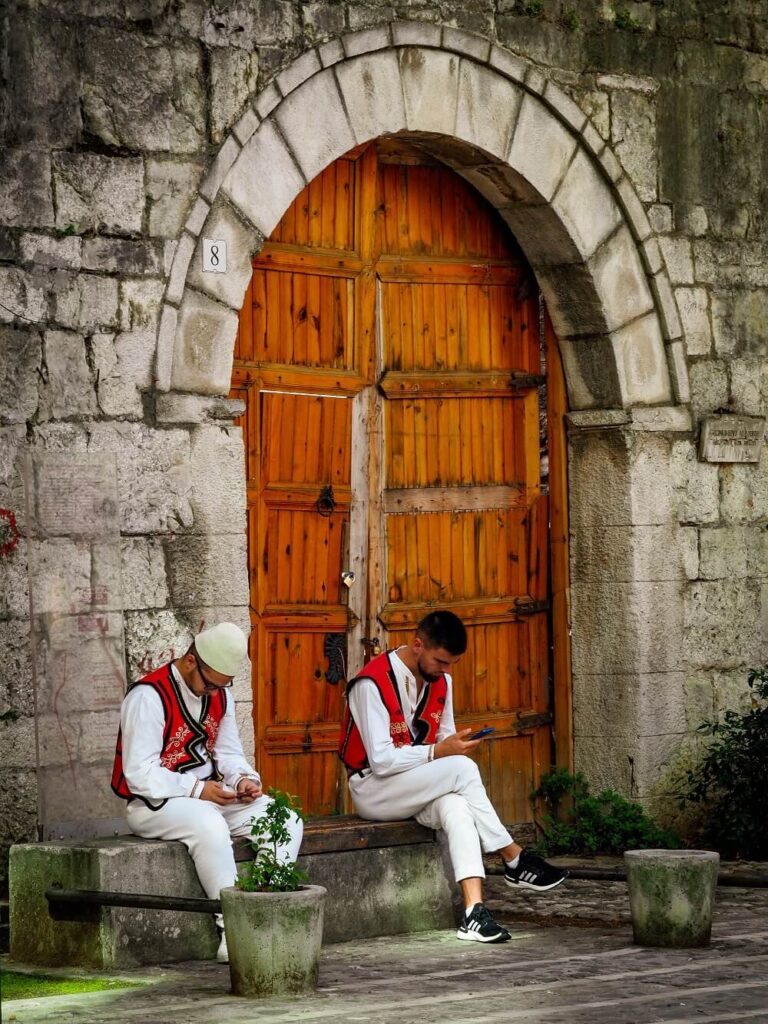
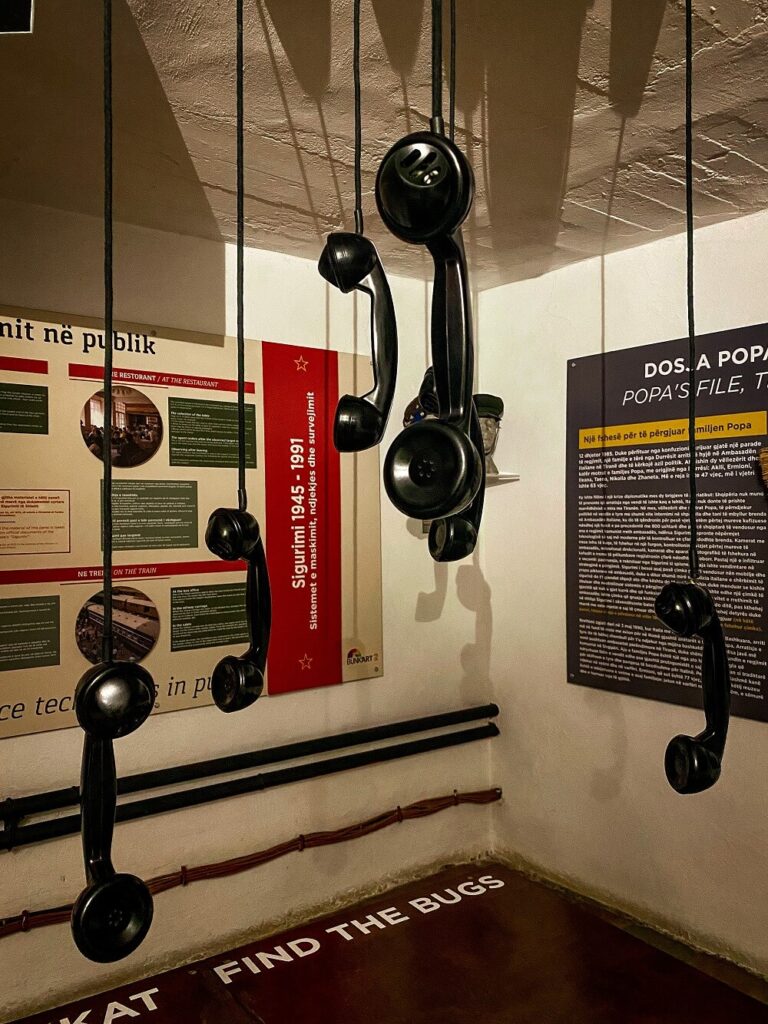
Q4: Do You need an Albanian SIM Card?
It depends. The majority of hotels, bars and restaurants will have WIFI. These days you can even join a free public network on many beaches and at historical sites.
However, we still recommend getting a local SIM card. Having data on the go can come in handy if you’re renting a car and wanting to follow the map or even when you’re using public transport or taxis. You can opt for Vodafone, One Telecommunications Albania or ALBtelecom. We went with Vodafone and they even have a tourist package you can buy.
If you don’t fancy getting a physical SIM card, you can always use Airalo. It is an app that allows you to download a prepaid eSIM to your phone in over 190 countries. You can choose from different packages and data allowances depending on how long you’re staying or how much internet you want to use.
Top Tip – Make sure to have a VPN to avoid hackers accessing your personal data when using public WIFI. We use Surfshark which is the only VPN that offers one account on unlimited devices.
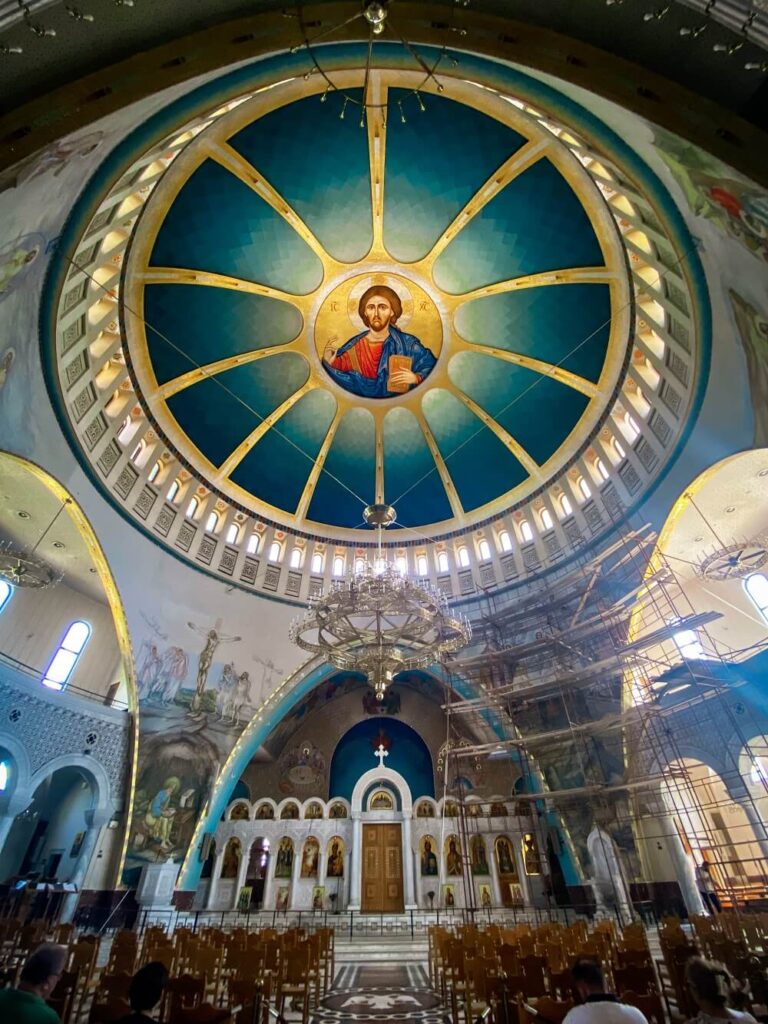
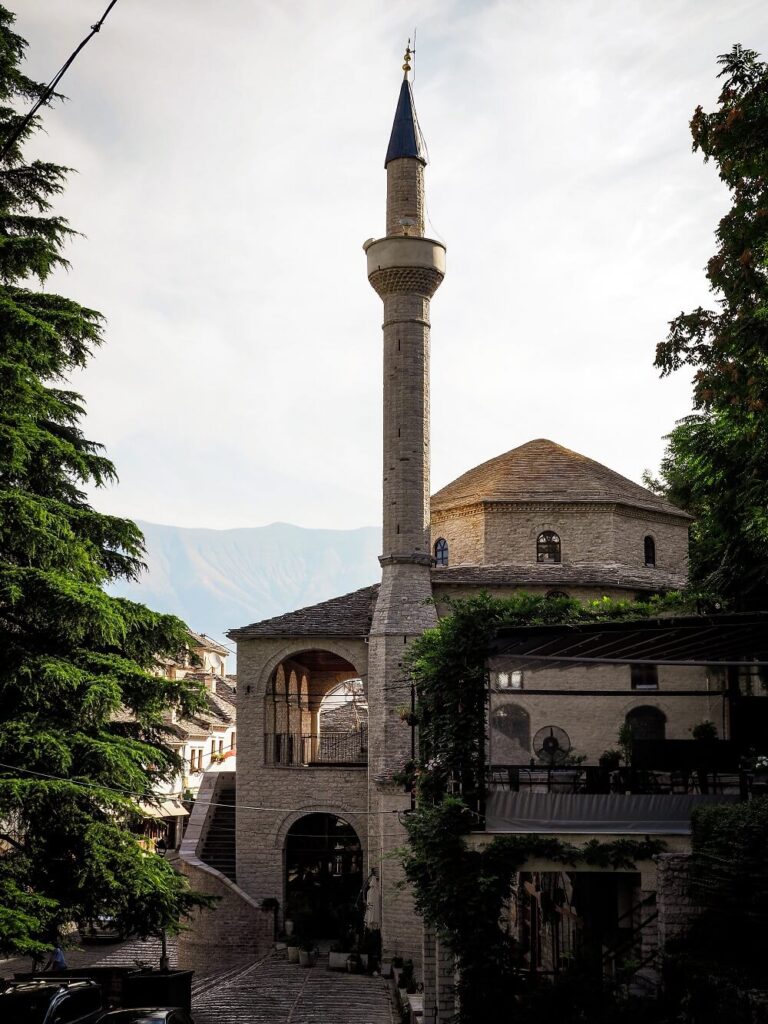
Q5: Appropriate Attire in Albania
Although the majority of Albania’s population is Muslim, you don’t have to cover your head or body parts if you’re a woman. You can basically dress how you would anywhere else in Europe. This includes wearing your usual bikinis and swimsuits on the beach.
Note. There are many beautiful religious sights across the country including churches and mosques. If you’re planning on visiting any of them then make sure to pack some clothes that would cover your shoulders and knees. In addition, if you’re a female wishing to enter a mosque you’ll need to cover your head too, so it’s good to bring a light scarf with you.
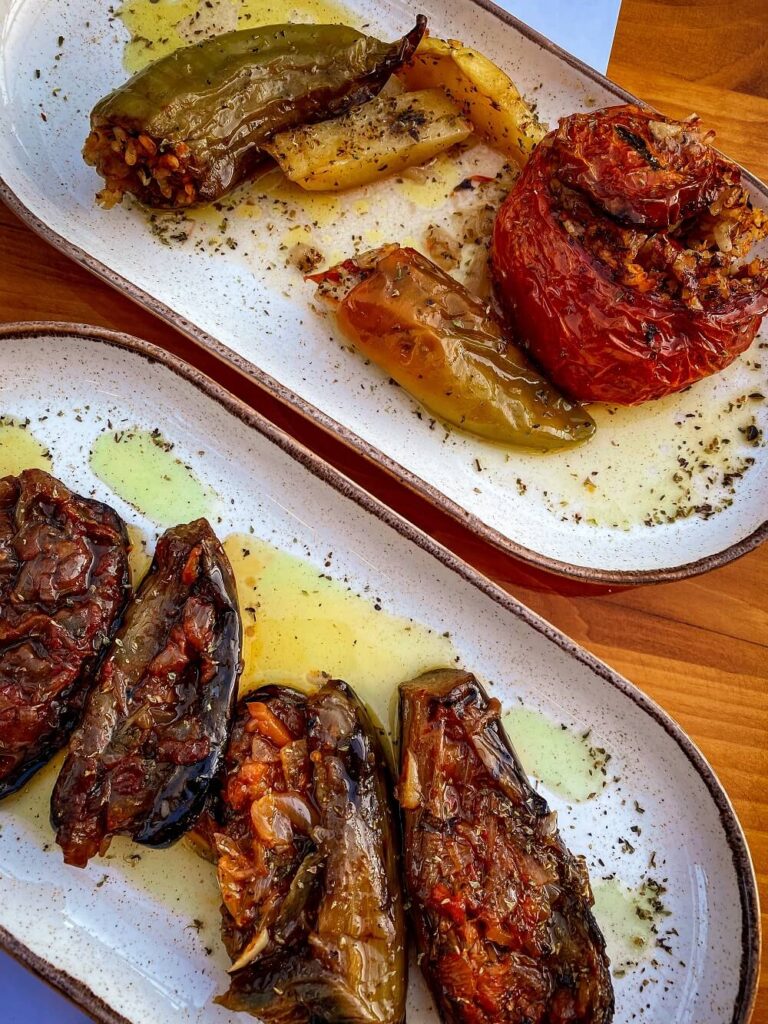
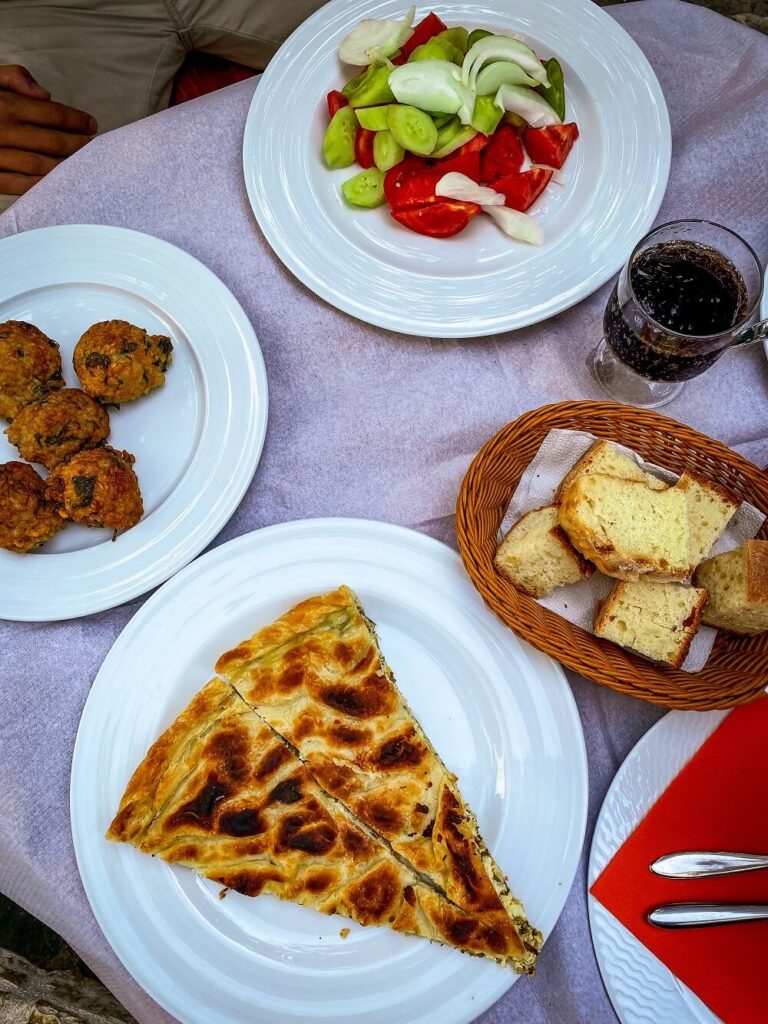
Health Related Albania Travel Tips
What to Eat and Drink in Albania?
Albanian cuisine is absolutely delicious. It is the perfect blend of Mediterranean flavours and is influenced by Greece, Türkiye (Turkey) and Italy, a mix that is hard not to enjoy.
The national dish is Tavë Kosi, which is lamb with rice, topped with an egg and yoghurt sauce. There are so many different dishes to try that listing them all could easily be a separate blog post. You can definitely taste something different every day. Whilst a lot of the dishes are meat based, we found just as many delicious vegetarian options too in most traditional restaurants.
Just like many other countries in the Balkans, Albania’s national drink is Raki. As a Hungarian, Raki to me is very similar to Pálinka, so I definitely enjoyed the drink. However, since this distilled spirit’s alcohol percentage is quite high, make sure to be careful and don’t drink too much.
Top Tip – If you have a sensitive stomach or digestive issues, then bring some of your medication with you. As a rule of thumb, always pick a place that’s filled with locals or, for more touristy places, check their reviews online. Of course, a small amount of Raki can also act like strong medicine. Wink, wink!
Can You Drink Tap Water in Albania
It is not advised to drink tap water in Albania.
Although, if you’re hiking in the Albanian Alps, you can definitely enjoy fresh spring water. We recommend having a water purifier bottle with you. Sometimes, your stomach can react differently to water from a foreign country, so it’s better to be cautious.
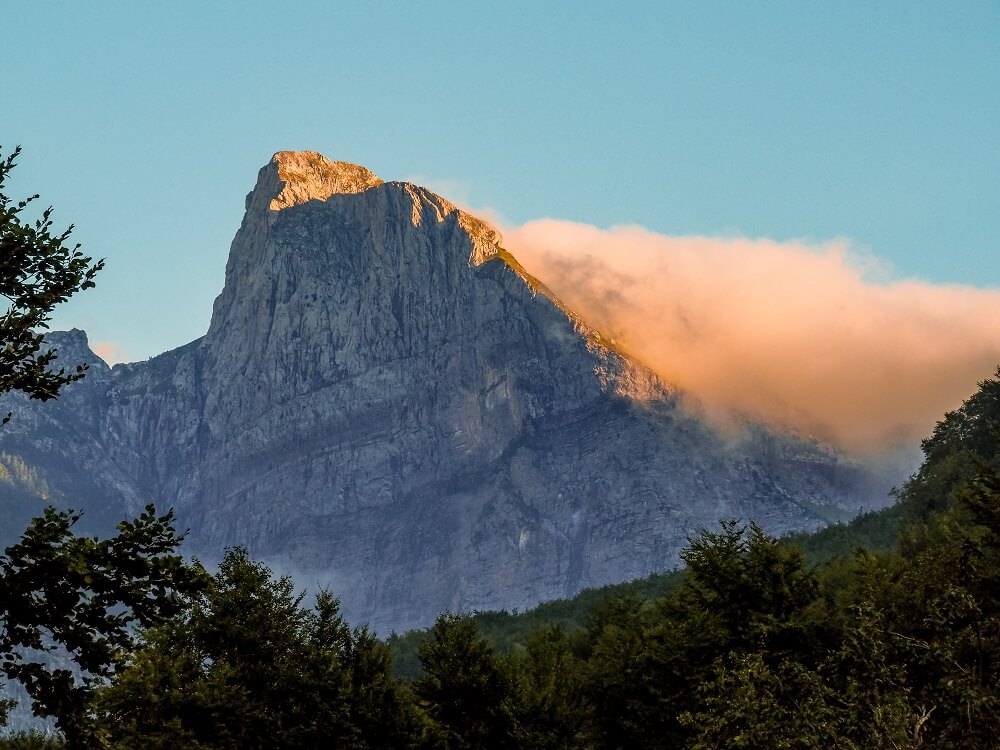
Natural Disasters and Hazards: Albania Travel Tips
Earthquakes: Albania lies in an earthquake zone with the last major earthquake occurring in 2019. You may or may not experience anything during your stay. However, we still recommend reading the US Federal Emergency Management Agency’s advice about what to do before, during and after an earthquake.
Winter weather conditions: During the winter months the mountainous regions in Albania can experience heavy snowfall. This could lead to road closures but also floods when the snow melts. Many of the trails are also closed during this time. If you’re planning on hiking in the country, then we recommend visiting between May/June and September.
Summer weather conditions: The summer months, especially July and August can be pretty hot in Albania. If you’re visiting during that time, make sure to protect your skin with SPF and don’t spend too long in the sun to avoid heat-stroke. Make sure to always drink plenty of water to avoid dehydration.
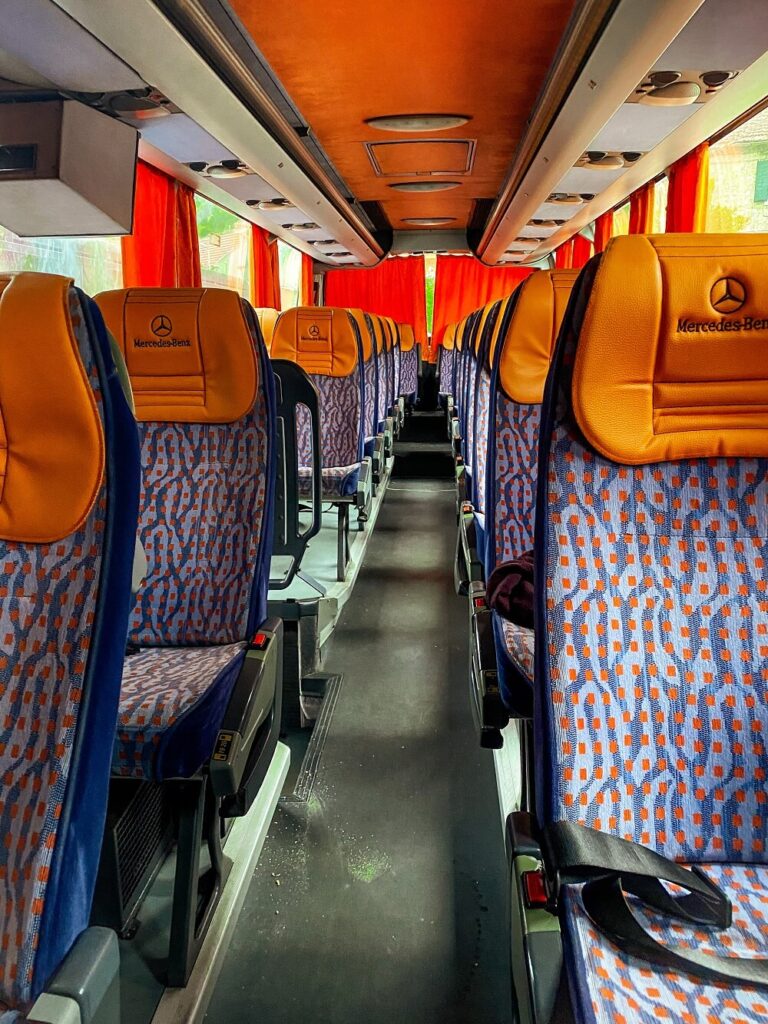
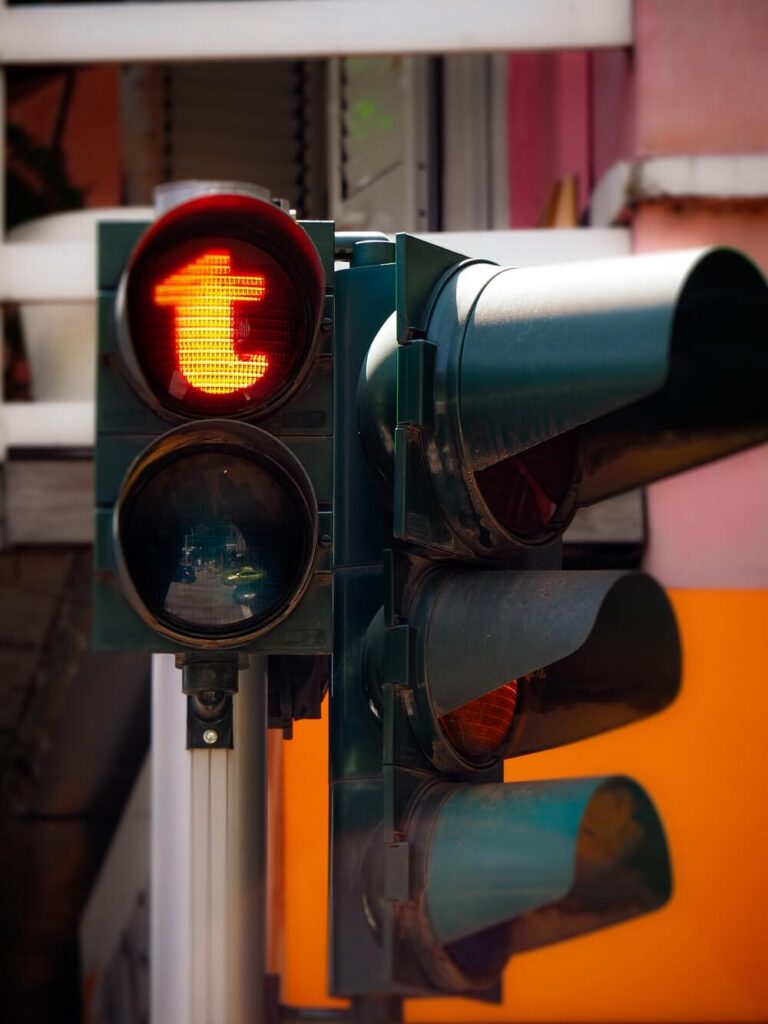
How to Get to Albania
By Plane – Tirana International Airport offers direct flights between many major European cities and a few countries in the Middle East. The airport is the largest and busiest airport in Albania. Once you’ve arrived, you can get to the city centre by a local shuttle bus, taxi or hire car.
If you choose public transport then you can hop onto the Rinas Express shuttle bus at the airport. It runs every hour between 8AM and 11PM and costs around 300 Lek (2.60EUR). The bus will then drop you off in the city centre.
Find Flights to Albania✈️
By Bus – If for some reason you can’t reach Tirana through a direct flight, or you’re visiting from other European countries, then you can take a bus to Tirana or other cities such as Shkoder and Saranda. There are regular direct Flixbus services from nearby countries such as Croatia (Dubrovnik), Montenegro (Podgorica, Budva, Kotor) and North Macedonia (Skopje, Ohrid). So, it’s worth checking if you can fly direct to any of these places and then taking the bus to Albania.
If you’re arriving to Tirana, the bus will drop you off at the International Bus Station, where you can take a short taxi ride to the centre or even walk if you’re staying close by.
Click below to find out how to get to certain locations in Albania:
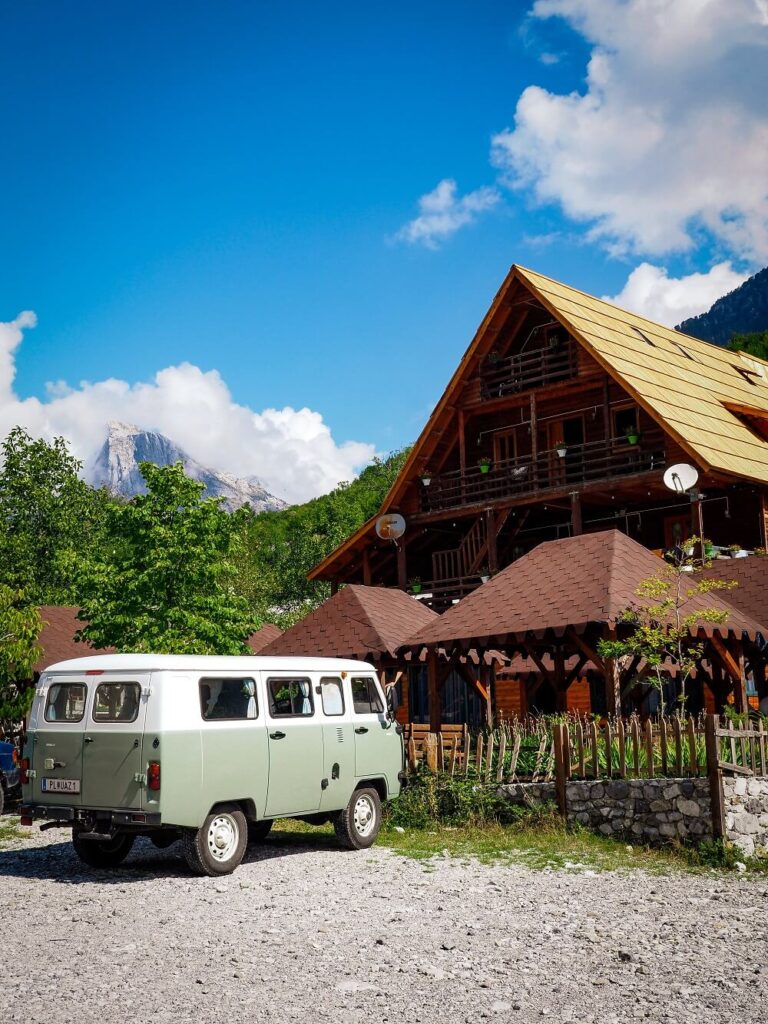
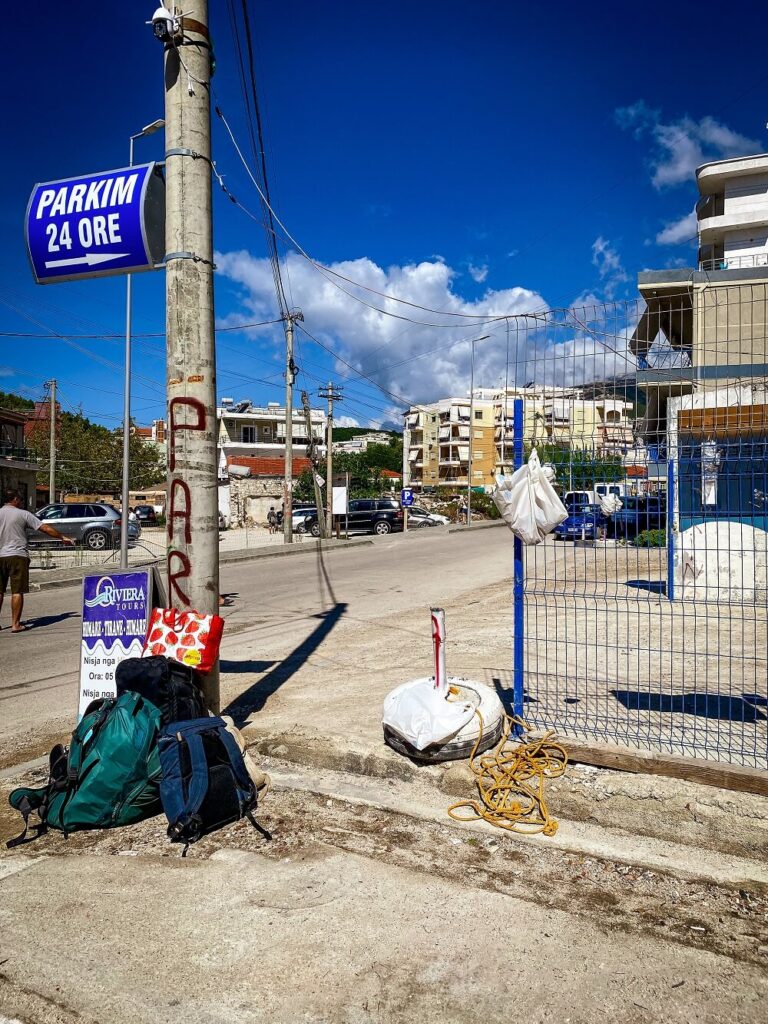
How to Get Around Albania
There are three main ways you can travel around Albania: by private vehicle, by public buses or by joining organised tours.
Private Vehicle
Hire Car. If you want complete freedom exploring Albania then it’s best to hire a car and drive around the country. The roads are in much better condition today than they were a few years ago. Unfortunately, Google Maps isn’t always up-to-date with current infrastructure and can show that some main roads are basically unpaved dirt roads. So, take Google Maps with a pinch of salt when driving around and consider downloading additional apps such as Maps.me and Waze.
Albanians can drive pretty fast and don’t always like to follow the road rules. So make sure that you’re obeying the speed limits and rules. The last thing you want is a speeding ticket on your holiday. Make sure to read more driving related laws and regulations before you hire a car.
Private Taxi. You can also use taxis to get between places, but unless you’re sharing the cost with multiple people, the price can rack up pretty quickly. Note that Uber isn’t available in Albania, but you can download a few taxi apps such as Speed Taxi and Ups Taxi that work in the same way.
Public Transport
You can also travel to most places in Albania by local buses or furgons. Furgons are essentially minibuses and they are privately owned. They run on a more flexible schedule than buses. You’ll likely travel in one to reach places like Gjirokaster, Saranda and Berat.
Your more traditional buses normally travel longer distances and usually depart from the capital Tirana to other larger cities like Shkoder or Saranda.
Buses and furgons are definitely the cheapest option when it comes to getting around the country. The only downside is that you are tied to a timetable or sometimes you have to wait for enough people to fill the bus before you can leave from one place to the next. They can also operate as delivery services so the back can fill up pretty quickly and you might make an unexpected stop here or there. After travelling across Mexico, Central and South America this felt quite normal to us!
The buses and furgons won’t be the most comfortable and they don’t have toilets either. We also noticed that bus stops may not even be sign posted. Generally speaking, major bus terminals sometimes have a few facilities but expect the place to look more like a petrol station or large car park than a fancy bus terminal.
Organised Tours
If you’re only in Albania for a very short time, you can just have a base in the bigger cities such as Tirana or Saranda and plan day trips from there. You definitely won’t have any trouble finding some cool excursions for the duration of your stay.
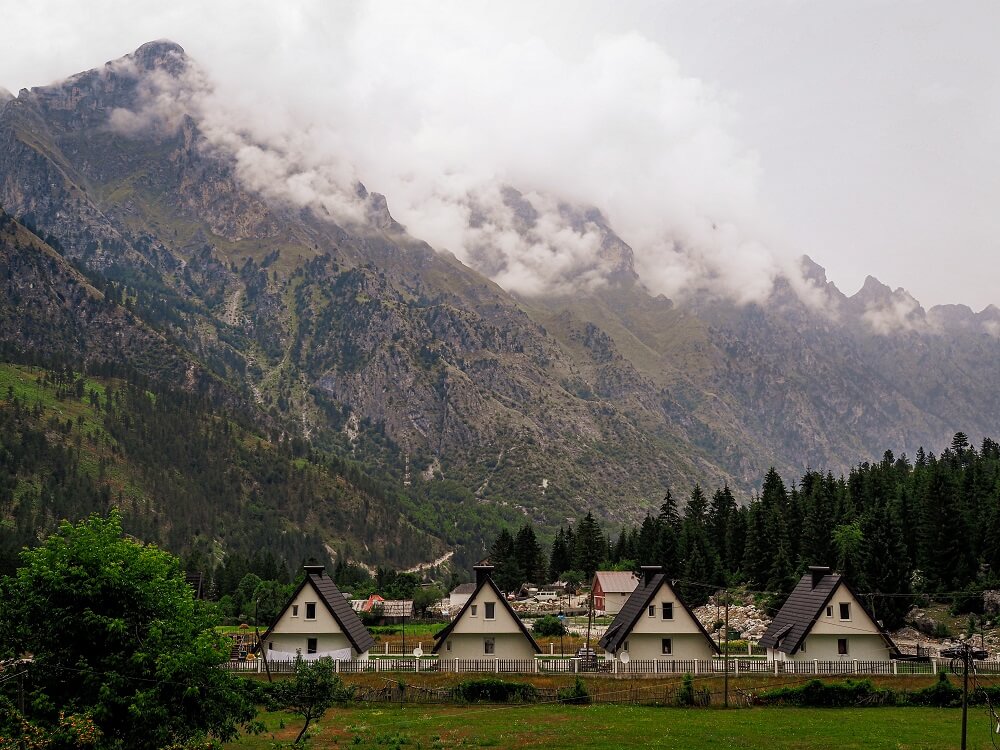
Accommodation in Albania
There is a wide variety of accommodation options you can stay at in Albania, which all depends on your budget and needs.
There is a wide selection of hotels within Tirana as well as other towns and cities across the country. Outside the capital, booking a guesthouse for bed and breakfast is also very common. In addition, there are also resorts available in the more beachy areas. If you’d like to stay in hotels, guesthouses or resorts, you can always check out booking.com.
If you’re a solo traveller, or want to make friends, then definitely check out hostelworld.com for a good selection of hostels. However, if you fancy staying in a more homey place you can always check out Airbnb.
Lastly, if you’re planning a more outdoorsy adventure in Albania, then you can consider camping as well.
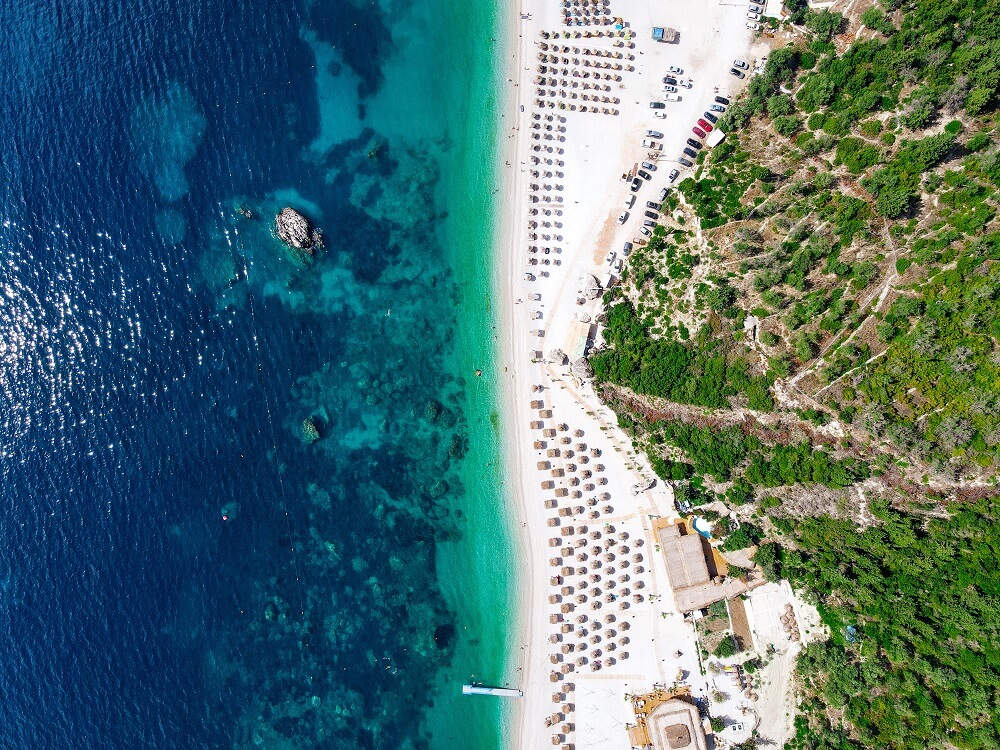
Best Time to Visit Albania
One of our main Albania travel tips is to visit the country outside of the summer months if you can.
Albania has very hot summers which can make wandering around cities and historical sites a bit unbearable. It’s also when most people flock to the beaches so they can get pretty crowded too. Of course, that’s not to say you can’t have a fantastic time during the summer holidays. We visited at the end of August / beginning of September and the weather was just perfect for completing the Valbona Pass hike in northern Albania. However, it was definitely still pretty hot on the beaches.
May, June and September are better months because you won’t be roasting and melting on the city streets and you’ll still have the chance to enjoy the Albanian Alps outside of the winter season.
Whilst you can visit Albania in the winter months too, be prepared for colder temperatures. During this time many of the hiking trails are also closed and of course you might not want to be lying on the beach either. In winter, Albania can be a great cultural and foodie experience in our opinion.
Final Thoughts on Albania Travel Tips
We hope that you found this Albania travel tips post useful because we definitely loved our stay in the country and never had any issues. We could always rely on locals to help us with directions and recommendations. Of course everyone’s experience is different in a country and we only spent two weeks there which isn’t a very long time.
Have you ever been to Albania? If so, how much of the country did you manage to explore? if not, would you travel to Albania in the future? Let me know in the comments below.
Now, let your adventure begin,
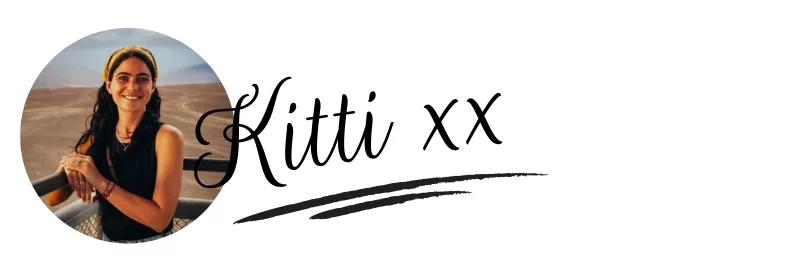
Our Top Travel Resources
Accommodation: For hotels we always use Booking.com and Hostelworld for hostels. We also book longer stays on Airbnb or Vrbo.
Flights: To find the best flight prices we always check Skyscanner, Google Flights or WayAway. Then we also check the airlines’ websites too for comparison.
Car Rentals: We use Discover Cars when we want to rent a car as it compares local, national and international companies.
Activities: If we book organised tours we always check either GetYourGuide or Viator.
Foreign Currency: Whenever we can we prefer to pay in local currency and for that we always use our Wise card. We can easily withdraw money from the ATM or pay by card at most shops and restaurants.
Travel Insurance: We never go anywhere without travel insurance. You never know what will happen on your trip, so good travel insurance like SafetyWing can protect you in case of injury, illness, theft and cancellations.
eSIM and VPN: To get data abroad we use Airalo which is an app that allows you to download a prepaid eSIM to your phone in over 190 countries. Make sure to have a VPN to avoid hackers accessing your personal data when using public WIFI. We use Surfshark which is the only VPN that offers one account on unlimited devices.
Remember…It all starts with a Pin…
